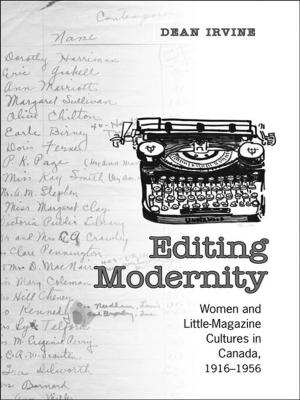Ugo Foscolo's Tragic Vision in Italy and England
Fiction & Literature, Literary Theory & Criticism, European, Italian, Nonfiction, Entertainment, Performing Arts, Theatre, History & Criticism| Author: | Rachel A. Walsh | ISBN: | 9781442619845 |
| Publisher: | University of Toronto Press, Scholarly Publishing Division | Publication: | November 5, 2014 |
| Imprint: | Language: | English |
| Author: | Rachel A. Walsh |
| ISBN: | 9781442619845 |
| Publisher: | University of Toronto Press, Scholarly Publishing Division |
| Publication: | November 5, 2014 |
| Imprint: | |
| Language: | English |
One of the most celebrated Italian writers of the early Romantic period, Ugo Foscolo (1778–1827) was known primarily as a novelist, a poet, and a nationalist. Following the Napoleonic Wars, he lived in self-exile in England during the last decade of his life. There he wrote numerous critical essays and collaborated with Lord Byron and other well-known members of English literary circles.
Ugo Foscolo’s Tragic Vision in Italy and England examines an underexplored aspect of Foscolo’s literary career: his tragic plays and critical essays on that genre. Rachel A. Walsh argues that for Foscolo tragedy was more than another genre in which to exercise his literary ambitions. It was the medium for an elaborate life-long process of self-examination and engagement with political and literary conflict. By analysing Foscolo’s tragic struggles on and off the stage, Walsh sheds new light on his career and how it reflects on the important literary and political trends of the time.
One of the most celebrated Italian writers of the early Romantic period, Ugo Foscolo (1778–1827) was known primarily as a novelist, a poet, and a nationalist. Following the Napoleonic Wars, he lived in self-exile in England during the last decade of his life. There he wrote numerous critical essays and collaborated with Lord Byron and other well-known members of English literary circles.
Ugo Foscolo’s Tragic Vision in Italy and England examines an underexplored aspect of Foscolo’s literary career: his tragic plays and critical essays on that genre. Rachel A. Walsh argues that for Foscolo tragedy was more than another genre in which to exercise his literary ambitions. It was the medium for an elaborate life-long process of self-examination and engagement with political and literary conflict. By analysing Foscolo’s tragic struggles on and off the stage, Walsh sheds new light on his career and how it reflects on the important literary and political trends of the time.















